What this Washington town learned from a job fair hardly anybody showed up to
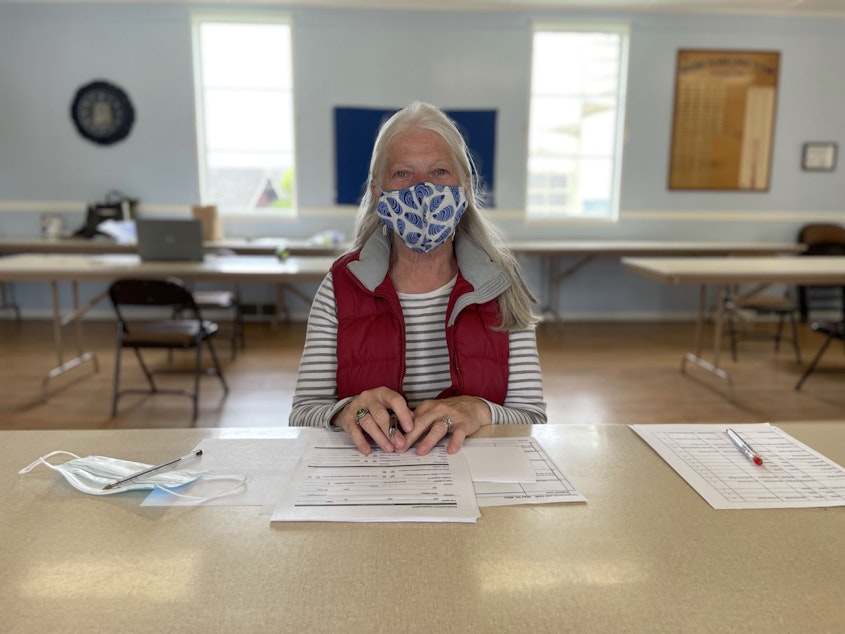
In the picturesque town of Coupeville, Wash., job vacancies usually fill by word of mouth. This year is different. Business owners are wondering: Where are all the workers?
So they put on a job fair, hoping to conjure applicants out of thin air.
On a recent Friday afternoon, in Coupeville’s old Masonic Lodge, volunteers sat at six tables facing empty chairs. Each volunteer held a list of the 65 job vacancies in Coupeville.
RELATED: In tiny Coupeville, tourists have returned. Workers have not.
The waterfront town of 1,800 people needed waiters, room cleaners, dishwashers, receptionists and cashiers — people to take money from the surge of tourists flooding back into the town to eat Penn Cove mussels, visit the museum and buy knickknacks.
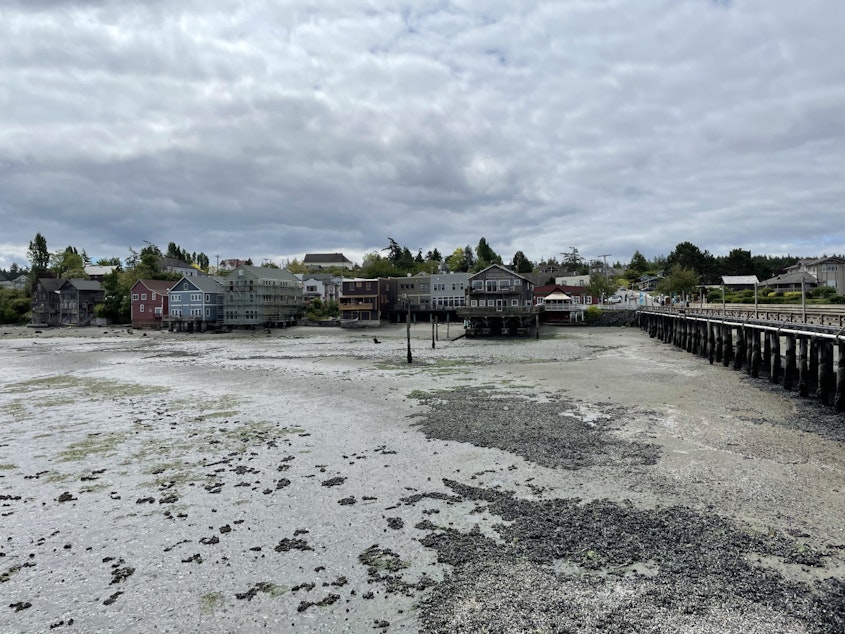
Half an hour after they opened the doors at the job fair, only one person had walked in.
“We had one guy who didn’t want to put his name on an application. So he, didn’t stay,” laughed Kathy Baxter, one of the volunteers.
That’s kind of how things went. Eventually, a couple more people trickled in, one at a time.
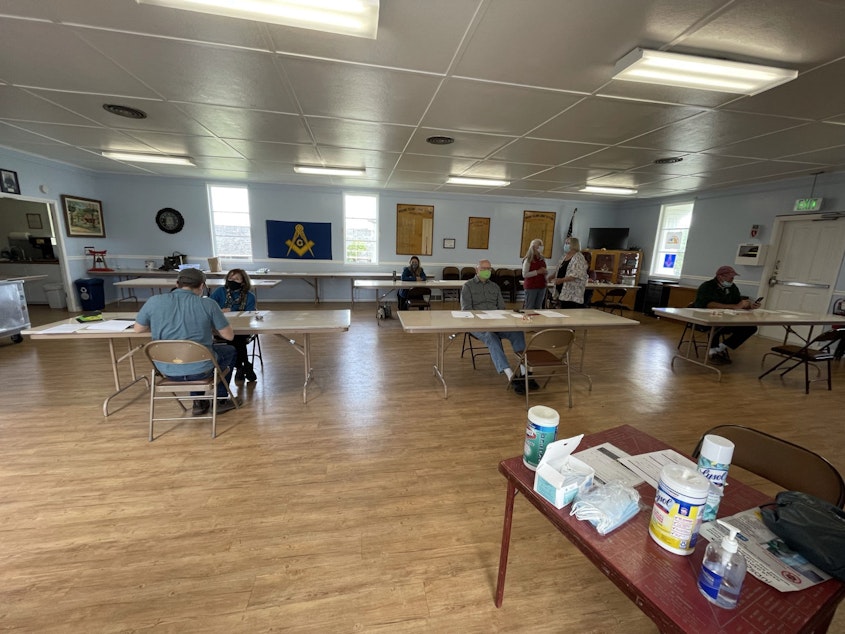
One was a high school graduate named Casey Rogers. She already had a job at Domino’s Pizza, but she wanted more hours, to pay for college.
“I worked four jobs over the last summer, which is not a good for my sleep schedule. But it was worth it.”
Rogers was surprised to be the only person at the job fair. “I’d expected there to be a lot more. But I can understand it because it’s Covid. You know.”
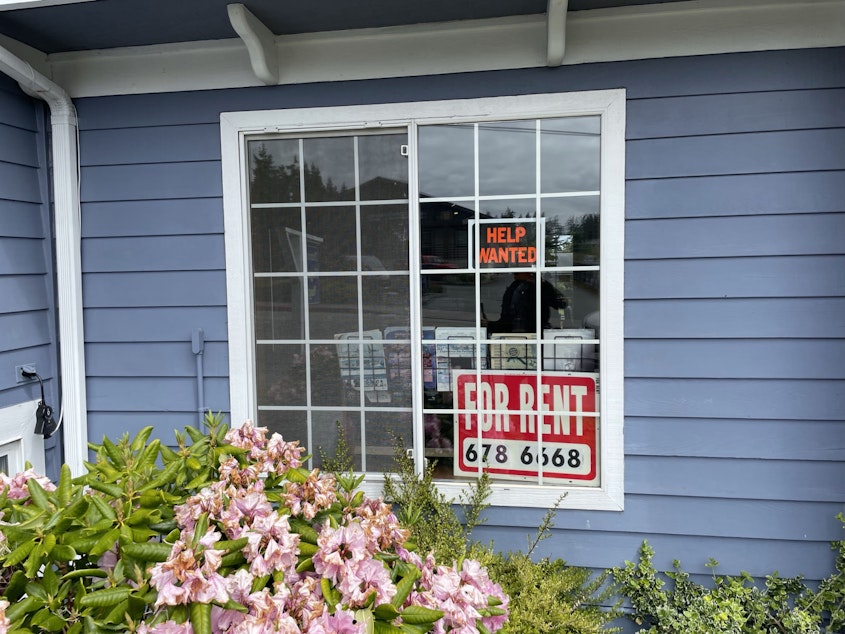
But there had to be more reasons than that. With no one else to talk to, the volunteers started talking to each other, trying to figure it out. They traded stories about people who weren’t coming back to work in Coupeville this year.
Vickie Chambers is one of the event organizers.
“I’ve heard direct, a couple of folks that are still worried about returning to such a social environment. Even though they’re vaccinated, they’re still worried about that," Chambers said. "We’ve had several employees that child care is an issue for them. We’ve had a couple employers interview and found people they really like for full time employment, and they can’t find housing. They can’t find a place to live.”
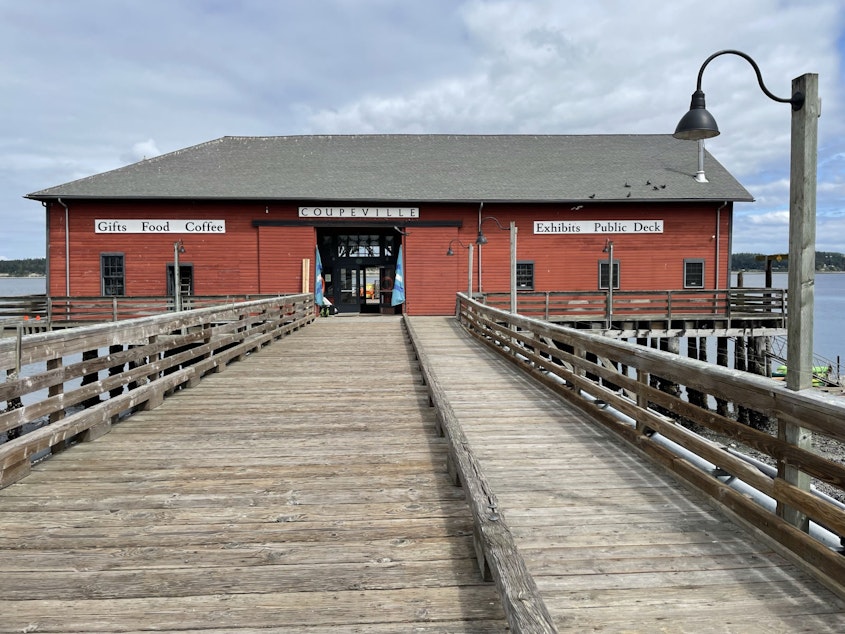
During the pandemic, businesses in Coupeville laid off workers, some of whom moved away. At the same time, workers employed in places like Seattle moved to the Whidbey Island, suddenly able to work from anywhere. Now that workers want to return to Coupeville service jobs, some can't find places to live.
Some business owners wondered whether unemployment benefits are keeping people away.
It could be, but it didn’t come up in any of the examples I heard at the job fair.
When you get into people’s personal stories, it’s often a complicated mess of factors that keep them from working.
The final job applicant of the day was a guy named Ryan Stewart.
He lost his job at a Sears auto shop at the beginning of the pandemic, when his company went bankrupt. His wife had a job, so he stayed at home, taking care of his two kids, a 4-year-old boy and a 10-year-old girl.
The youngest had a compromised immune system, so sending him to day care didn’t feel safe.
“I’ve been ready to go back to work, but things happen in life."
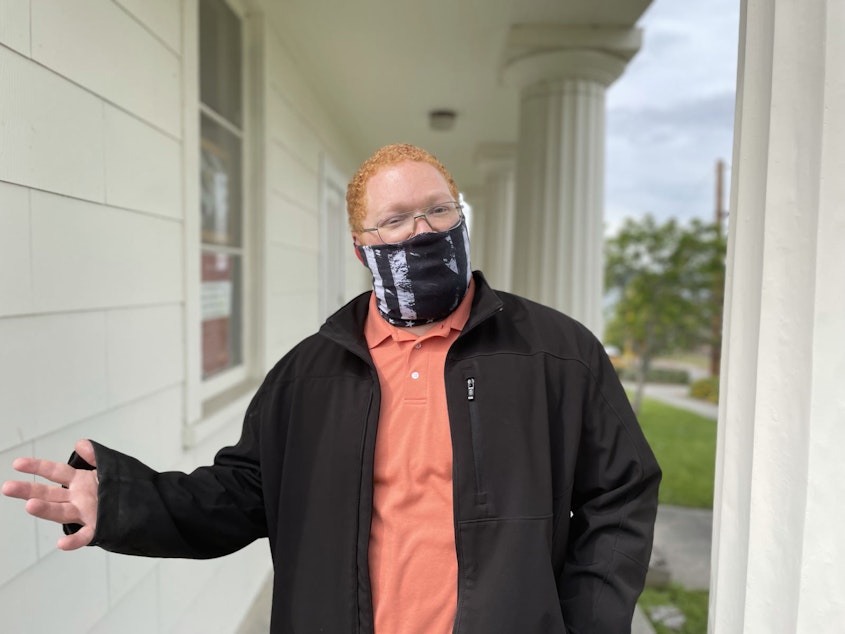
Stewart and his wife ended up divorcing. But the two of them continued to live in the same home.
He said he'd really like to get a job, so he can get his own place, because his living situation is so awkward.
“Yeah, especially seeing as how she just got married.”
But he couldn’t act on his wish to find a job because so many complicated factors held him back, principally child care.
At some point, he decided he’d just have to accept the risk of sending his kid to childcare, so dad could work.
“I think we as human beings ... we have that, like, hunger for control. And we hate feeling helpless. But at some point, you just have to let go of those things that you’re holding on to — that stress, that anxiety. You can stress all you want, but it doesn’t make you any more productive.”
Stewart left the job fair feeling good about a possible bus driving job.
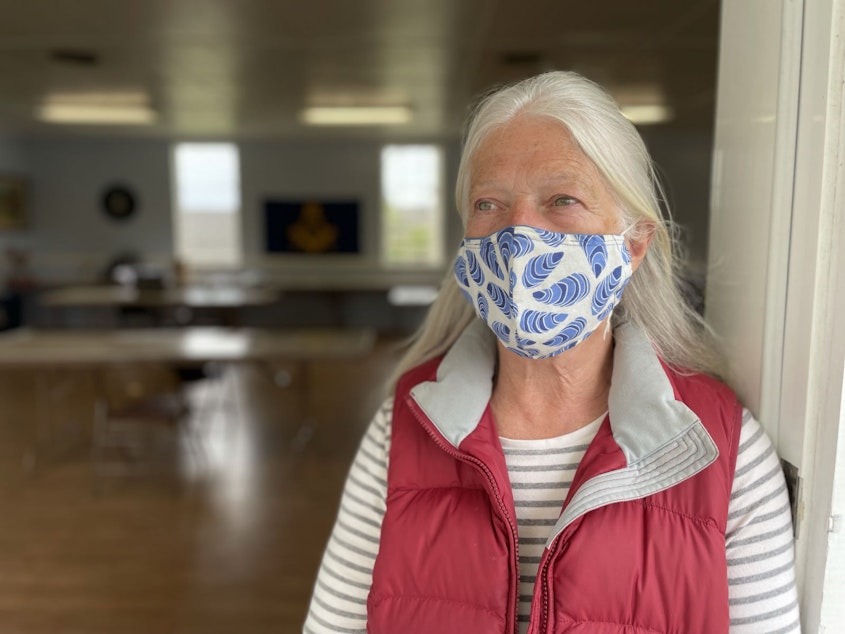
At the end of the day, only about five people showed up. Vickie Chambers was disappointed, but chose to remain optimistic.
“What I’d like to believe is that the word is out that we’re hiring in Coupeville. And you may not have made the job fair, but there’s jobs out there, come down and knock on a door, and we’ll match you up.”
That story was part of KUOW’s series The Main Street Project, where we examine economic recovery one street at a time.

